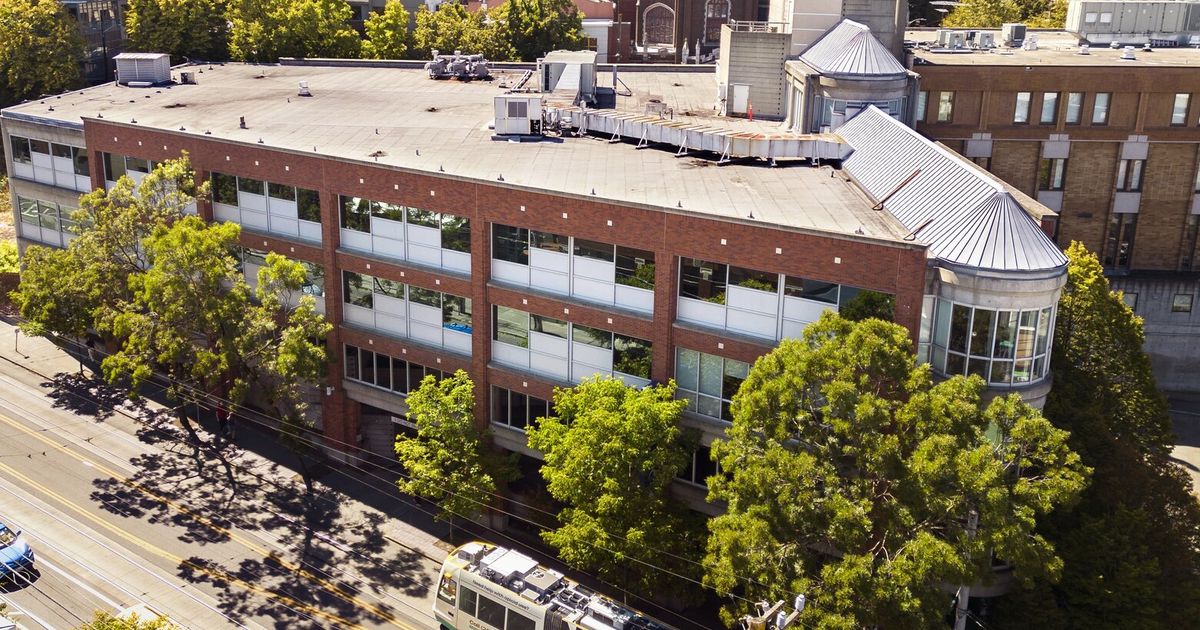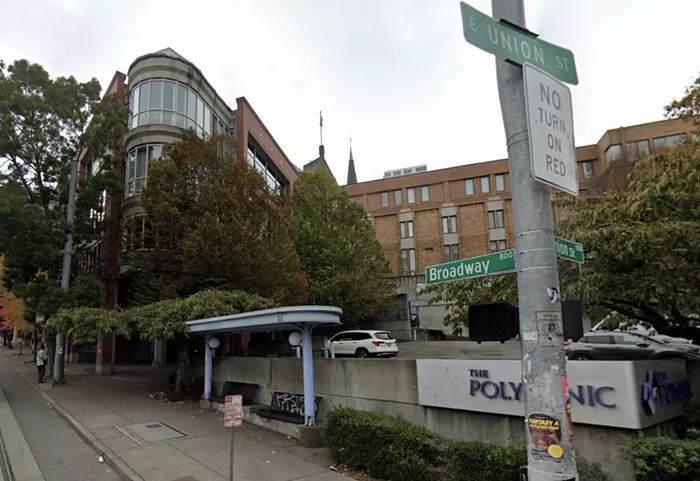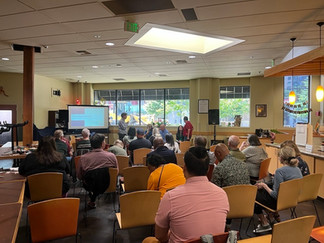- Blair Gaston

- Oct 6, 2025
- 4 min read
Updated: Oct 8, 2025
SEATTLE, Wash. — October 7, 2025
Today marks a historic victory for Seattle, King County, and the entire recovery community. The Metropolitan King County Council voted to approve plans and funding for the new Crisis Care Center (CCC) at the former Polyclinic building on Broadway and East Union Street in Seattle’s First Hill neighborhood.
This decision results from several months of community conversations that engaged recovery groups, local organizations, King County officials, and residents. These discussions were led in part by King County DCHS, the King County Behavioral Health and Recovery Division, PDA, the Washington Recovery Alliance (WRA), and its program, the King County Recovery Coalition (KCRC). KCRC’s involvement in the Crisis Care Centers initiative began in early 2023, when the coalition made its first-ever formal endorsement in support of the county’s levy to fund the centers. KCRC helped raise community awareness leading up to the vote and participated in the county’s implementation meetings over the following year to ensure recovery perspectives were included in planning. KCRC Director Heather Venegas later reflected on this early involvement in an interview with Josh Cohen for Crosscut.
The new center will be part of a countywide network of five walk-in behavioral health crisis centers, providing urgent mental health and substance use treatment to anyone who needs it – regardless of their insurance status or ability to pay.
The Seattle center will offer multiple levels of care, including urgent appointments and longer stays of up to 14 days. The county will pay $41.5 million to purchase the 115,000-square-foot building, using a combination of voter-approved levy funds and bond financing. Construction will include a 16-bed mental health residential treatment facility and leased medical provider space.
From the earliest stages, the recovery community played a central role in shaping this effort.
Back in May, KCRC was featured in The Stranger, through the voice of its Director Heather Venegas. Amplifying the importance of centering lived experience in decisions about crisis care. She highlighted the urgent need for services designed with and for people navigating co-occurring mental health and substance use challenges.
Around the same time, WRA and KCRC helped lift up conversations happening behind the scenes, including on the King County Recovery Conversations podcast, where Jennifer Winslow shared the inside story of the Crisis Care Centers Initiative and its “no wrong door” philosophy.
In June, KCRC and partners co-hosted a packed community conversation at Recovery Café South Lake Union with King County’s Department of Community and Human Services (DCHS), Peer Seattle, and Vocal WA.
This gathering allowed residents to hear directly from system leaders and share their perspectives on the proposed Broadway site. King County publicly thanked KCRC and partners for their role in creating meaningful opportunities for community input:
“Thank you so much for your support and help in getting this desperately needed service out to the community members in Capitol Hill and King County! We couldn’t have done it without you!!!”— Idabelle Fosse, DCHS
Throughout the summer, WRA and KCRC kept the recovery community informed and mobilized, sharing updates from the County and encouraging participation in meetings and hearings. When the proposal reached the King County Council, community members appeared in person, online, and via email – to ensure their voices were heard before the vote.
The approval of the Crisis Care Center represents more than just a new building. It is a community-driven win that will expand access to care, create a safer and more compassionate response to behavioral health crises, and strengthen the network of support available across King County.
This project is a direct outcome of years of advocacy, storytelling, and collaboration – from the passage of the 2023 Crisis Care Centers levy, to more than 40 community meetings with First Hill and Capitol Hill residents, businesses, hospitals, and first responders.
For the recovery community, this decision affirms that lived experience and collective action matter. It’s a reminder that when people come together (whether in organizations, governments, or communities) we can effect transformative change.
The building purchase is expected to close by the end of 2025, with the Crisis Care Center slated to open by late 2027. In the months ahead, King County and the City of Seattle will continue collaborating on safety assessments, design considerations, a Good Neighbor Agreement, and the creation of a Community Advisory Board to support long-term success.
WRA and KCRC remain committed to staying engaged through implementation, ensuring that the voices of people in recovery, families, peers, and providers remain at the center as this new facility takes shape.
This is a victory for everyone: for individuals in crisis who will soon have a place to turn; for communities seeking compassionate, effective solutions; and for the recovery movement in King County.
Join the Recovery Movement
The approval of the First Hill Crisis Care Center is just one example of what’s possible when community comes together. Join the recovery movement by showing up, speaking out, and staying connected.
WRA and KCRC have several upcoming opportunities to get involved – including Recovery in Action, a community pre-event before the King County Behavioral Health Legislative Forum; Elevate Recovery Voices Training; and Recovery Advocacy Day in Olympia this winter.
For details on these and other upcoming events, visit:














